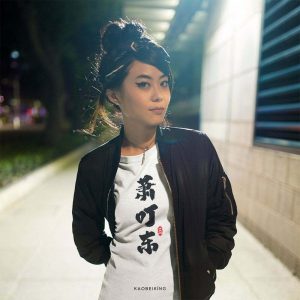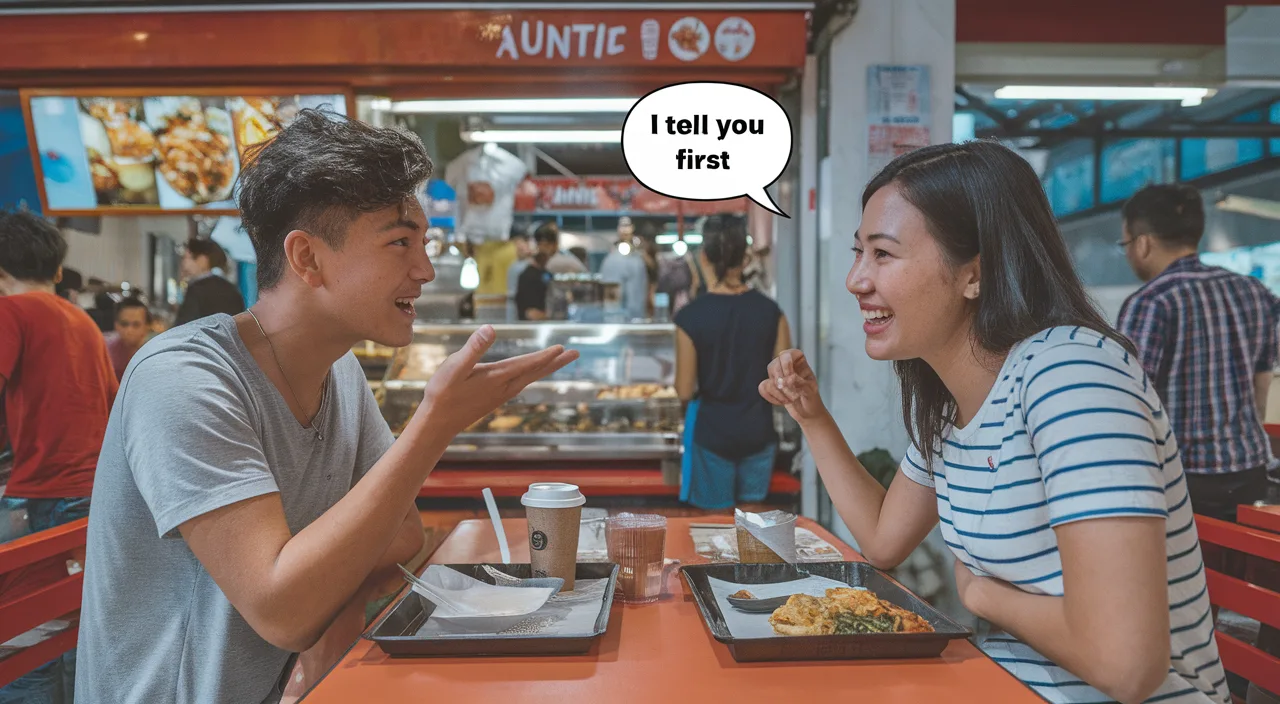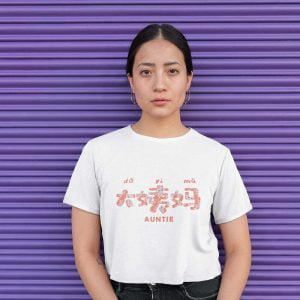What Does ‘I Tell You First’ Mean in Singaporean Culture?
Short answer: When Singaporeans say “I tell you first,” we’re not being bossy—we’re giving you a friendly heads-up, sharing valuable advice, or offering a protective warning. It’s our uniquely Singaporean way of saying, “I care about you, so listen up.”
-
Chinese, KaoBeiKing, Quote, T-shirts, Typography
Price range: $30.00 through $38.00 Select options This product has multiple variants. The options may be chosen on the product page
- Key Points About This Singlish Expression:
- ‘I tell you first’ is a common Singlish phrase that introduces advice, warnings, or important information.
- It reflects Singaporean communication styles: caring yet direct, protective but practical.
- The phrase carries different meanings depending on tone and context.
- Understanding Singlish expressions like this helps you appreciate our shared cultural experiences.
- These phrases highlight the key difference between Singlish and English in emotional expression.
Understanding Singlish Culture and Our Communication Style
Let’s dive deeper into what makes Singlish expressions so special. Singlish isn’t just broken English with a few “lahs” thrown in—it’s our linguistic masterpiece that blends Malay, Hokkien, Tamil, Cantonese, and English into something uniquely ours. This reflects our multicultural roots and shows how we’ve created a language that captures emotions faster and more precisely than standard English ever could.
What makes Singlish expressions worth understanding isn’t just the words themselves—it’s the attitude and culture behind them. Singaporeans don’t just speak English; we’ve transformed it into something that reflects our values, experiences, and way of life. We’ve built an entire emotional communication system using shorthand phrases, specific tones, and culturally loaded expressions.
So when you hear a fellow Singaporean say, “You don’t want to listen, then what next?”, don’t take offense. They’re probably just looking out for you in their own caring, albeit direct, Singaporean way.
Decoding the Phrase “I Tell You First”
-
Price range: $30.00 through $38.00 Select options This product has multiple variants. The options may be chosen on the product page
-
Chinese, Chinese New Year, Ladies, Mens, T-shirts
Price range: $30.00 through $38.00 Select options This product has multiple variants. The options may be chosen on the product page
Let’s break down this essential Singlish expression: “I tell you first.” While it might sound abrupt to non-Singaporeans, among locals, it’s actually a form of care and consideration disguised as directness.
Here’s what this typical Singaporean phrase means in different contexts:
- Friendly warning: “I tell you first ah, this coffee shop’s char kway teow super oily one.” This shows concern for your dining experience and health.
- Social preparation: “I tell you first, later my mum come, must act like we studying.” Translation: let’s coordinate our story to avoid trouble.
- Gentle boundary setting: “I tell you first, you late again I don’t wait anymore.” Polite but firm—classic Singaporean directness with care.
- Information sharing with responsibility: “I tell you first ah, don’t say I never warn you.” Usually followed by valuable insider information with a built-in disclaimer.
This single phrase does incredible work in our Singaporean communication style. It shows responsibility, demonstrates care, and establishes trust. It’s proactive communication—like insurance against future misunderstandings or blame.
Common Singlish Expressions Every Singaporean Uses
Beyond “I tell you first,” there’s a rich collection of Singlish expressions that reveal deeper insights into Singaporean behavior and values. Let’s explore some of these linguistic gems.
1. “Then what next?”
The interpretation of ‘Then what next?’ goes beyond its literal meaning. This phrase typically translates to: “So what’s your plan now?” or “What are you going to do about this situation?” It can sound confrontational, but it’s usually a genuine request for problem-solving or a way to express frustration when no good solutions exist. The tone determines whether it’s confused, concerned, or completely exasperated.
2. “Don’t play play”
Made famous by Phua Chu Kang but now used across all generations, this warns that something should be taken seriously. Your aunt might use it about her mahjong skills, your boss might deploy it before performance review season. It’s our way of saying “this is serious business.”
3. “OK lah, can”
Don’t mistake this for enthusiastic agreement. It’s often 50% acceptance, 50% resignation. We’ll go along with the plan, but we have feelings about it. It’s polite compliance with a subtle undertone.
4. “You wait long long”
A beautifully poetic way to say “that’s never going to happen.” Sweet on the surface but savage at its core—passive-aggressive communication perfected into an art form.
-
Chinese, Chinese New Year, KaoBeiKing, T-shirts, Typography, Women
Price range: $30.00 through $38.00 Select options This product has multiple variants. The options may be chosen on the product page
The Humor and Heart in Singaporean Communication
What makes Singaporean communication styles so entertaining is our natural tendency toward gentle sarcasm, socially acceptable directness, and self-deprecating humor. We’ve mastered the art of saying exactly what we mean while maintaining social harmony.
Our everyday typical Singaporean phrases work as social lubricants—they let us be nosy without being intrusive, disagree without causing offense, and give advice without overstepping boundaries. Even our complaints are theatrical and somehow endearing:
- “This one I kenna liao lor” — a dramatic way of announcing, “I’m in trouble now.”
- “Wah piang eh” — incredibly versatile, expressing everything from amazement to annoyance in three syllables.
- “Alamak / AIYOH / Wah lau eh” — universal emotional reactions that perfectly capture entire moods in single exclamations.
Why Understanding Singlish Matters for Our Identity
Understanding Singlish means recognizing that it’s not broken English—it’s efficient, expressive, and emotionally sophisticated. Our language developed naturally in hawker centers, void decks, and school canteens. When people ask about the difference between Singlish and English, remind them it’s about function and cultural context, not language ability.
We use Singlish expressions not because we can’t speak proper English, but because our Singaporean communication style values efficiency, emotional accuracy, and cultural connection. These phrases carry layers of meaning that standard English simply can’t capture as effectively.
The more you appreciate these expressions, the more you realize how identity, emotion, community values, and even social dynamics are embedded in every “can lah” and “don’t anyhow say.”
So embrace it. Whether you’re Gen Z, millennial, or just curious about our culture, don’t hesitate to use and appreciate these phrases. Behind every “I tell you first” is a rich community code that reflects our unique way of caring for each other.
Final Thoughts on Singaporean Communication
The next time someone starts with “I tell you first, ah…”—pay attention. You’re about to receive valuable advice, gentle correction, or be invited into a good old-fashioned sharing session over coffee and curry puffs. This is authentic Singaporean communication: no unnecessary filter, but always with genuine heart and care.
FAQs About ‘Singaporeans Be Like: I Tell You First, Then What Next?’
- 1. Is ‘I tell you first’ considered rude?
Not at all. In most cases, it’s just a helpful heads-up or soft warning. - 2. What’s the meaning of ‘Then what next?’ in Singapore?
It’s usually rhetorical, implying there’s no better solution or next step. - 3. Why do Singaporeans use so many expressions in daily speech?
It makes communication faster, funnier, and emotionally colourful. - 4. How is Singlish different from broken English?
Singlish is a creole with its own structure and cultural depth, not poor grammar. - 5. Is Singlish dying out?
No lah. It’s evolving, but still very much alive in daily convos. - 6. Can foreigners learn Singlish?
Can! But must absorb the culture, not just copy the words. - 7. Is it OK to speak Singlish in professional settings?
Depends. Some workplaces are flexible, others expect “standard English.” Smart switching is key.








